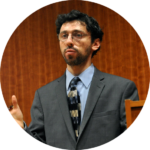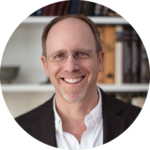Duisburg

First Jewish presence: 1241; peak Jewish population: 1,805 in 1933; Jewish population in 1933: 1,805
A small number of Jews lived in Duisburg in 1241, and had even established a synagogue there. During the Black Death pogroms of 1348/49, the Jews of Duisburg suffered the fate shared by other Jews in Germany: murder. Thereafter, Jews were not permitted to live in Duisburg without special permission until the 17th century. A new Jewish presence was established in the city after the ban was lifted, but it was not until 1793 that the community opened a prayer room. The Industrial Revolution had a great impact on Duisburg. As it was an industrial city, laborers from all over Germany flocked there. So did Jews, and their numbers increased so much that by 1824 they had outgrown their prayer room. To alleviate the problem, the community leased a large warehouse and converted it into a synagogue with an adjacent mikveh. The synagogue building was adequate for several years, but by 1864 had deteriorated to such an extent that renovation was no longer an option. Instead, the community decided to build a new synagogue; construction commenced in 1871, and in March 1875, the synagogue was inaugurated. A magnificent structure, its architectural style combined Romanesque, Gothic and Classical features. The dome at its center was visible from afar. Duisburg was also home to a substantial Orthodox community. Known as Machzikeh Hadas, this community conducted services in a modest synagogue and maintained its own school and mikveh. During the early 1920s, the Jews of Duisburg began to suffer from isolated anti-Semitic incidents. The situation worsened with every passing year; by 1933, vandalism, harassment and assault had become routine. On Pogrom Night, shortly after midnight, SS troops broke into the synagogue, plundered it and set it on fire. They also incinerated the community center, the rabbi’s residence and the Machzikeh Hadas synagogue. Both synagogues were torn down in early 1939. Later, a home for the disabled was built on the site of the larger house of worship. A memorial plaque, commemorating the Jews of Duisburg and their history, has been unveiled on the street corner on which the synagogue once stood.Moshe Finkel
Copyright: Pogrom Night 1938 - A Memorial to the Destroyed Synagogues of Germany/ Germansynagogues.com
Notes
Sources: Lexikon der jüdischen Gemeinde in Deutschen Sprachraum, Klaus Dieter-Alicke, [publisher] Gütersloher Verlagshaus, 2008., Feuer in dein Heiligtum gelegt: Zerstörte Synagogen 1938 Nordrhein-Westfalen, Michael Brooke [Ed.], Meier Schwarz [foreword], [publisher] Kamp, 1999., Synagogen Internet Archiv, www.synagogen.info
Details
| Date Added | Feb 13, 2020 |
|---|---|
| Category | Residential |
| Country | DE |
| State | North Rhine-Westhalia |
| City | Duisburg |
| Exhibits | Pogrom Night 1938 - A Memorial to the Destroyed Synagogues of Germany |
Have additional information, photos, connections, or other resources to contribute?
Help Us in the race against time to time document Jewish history!






